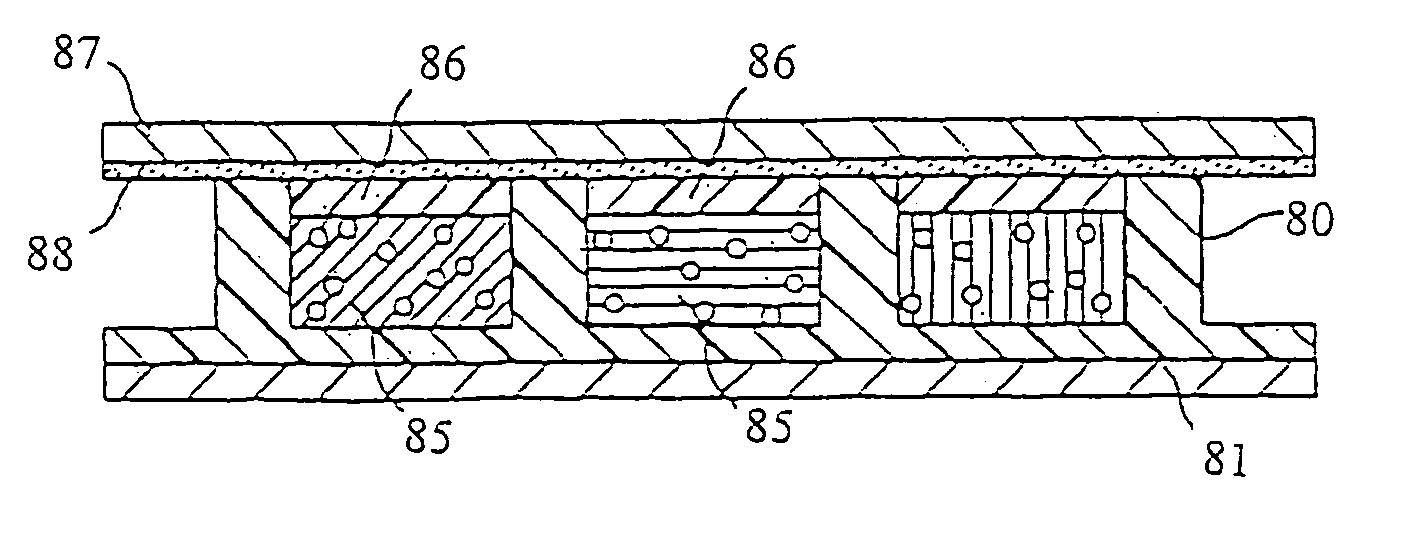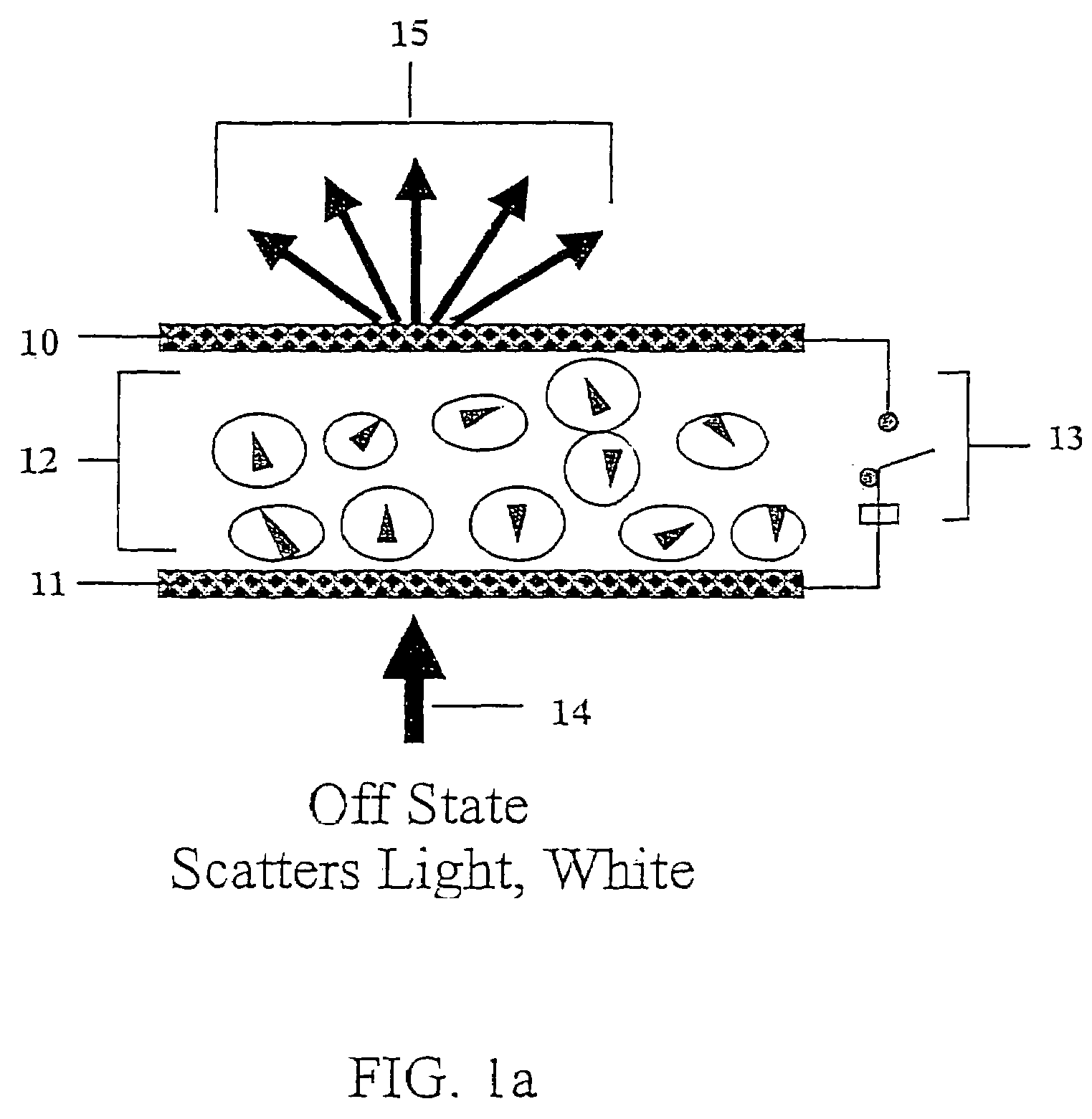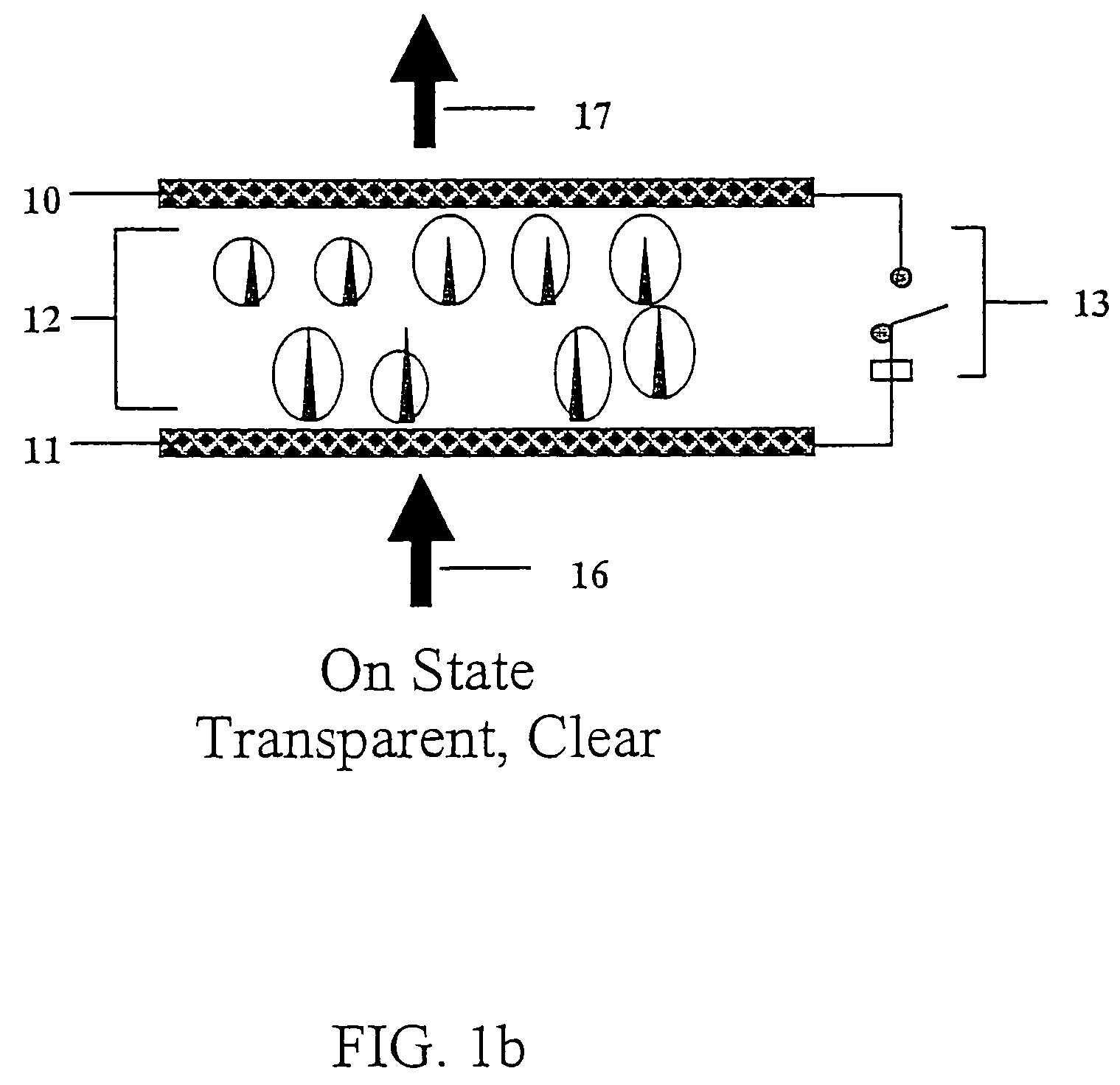Transmissive or reflective liquid crystal display and process for its manufacture
a liquid crystal display and reflective technology, applied in the field of liquid crystal displays, can solve the problems of high operation voltage, poor contrast ratio, significant hysteresis, etc., and achieve the effects of improving contrast ratio and color saturation, high volume, and low cost production
- Summary
- Abstract
- Description
- Claims
- Application Information
AI Technical Summary
Benefits of technology
Problems solved by technology
Method used
Image
Examples
example 1
Preparation of Microcups by Microembossing
[0095]The composition shown in Table 1 was coated with a Myrad bar #6 coated onto a 2 mil PET film precoated with an ITO conductor layer from Sheldahl (Northfield, Minn.). A pre-patterned (4×4×4 microns) cobalt nickel male mold and a mold release Frekote 700-NC from Henkel were used for microembossing. The coating thickness was controlled to be about 5 microns. The coated film was then embossed by the stencil using a pressure roller at 90° C. The coating was then UV-cured for about 1 minute through the Mylar film using a Cure Zone exposure unit (ADAC Technologies) equipped with a metal fluoride lamp with an intensity of 80 mW / cm2 at 365 nm. The embossed film was then released from the mold to reveal well-defined (4×4×4 microns) microcups. The microembossing was carried out using the GBC Laminator at 90° C.
[0096]
TABLE 1UV-curable Acrylate Formulation for MicrocupsNo.DescriptionIngredientSupplierParts1Epoxy acrylateEbecryl 600UCB Chemicals552P...
example 2
Preparation of Microcups by Microembossing
[0097]The same as Example 1 except the formulation shown in Table 2 was coated and bossed with a male mold of 4×4×4 microns.
[0098]
TABLE 2UV-curable Acrylate Formulation for MicrocupsNo.DescriptionIngredientSupplierParts1Epoxy acrylateEbecryl 600UCB Chemicals502Polyester acrylateEbecryl 830UCB Chemicals153Urethane acrylateEbecryl 6700UCB Chemicals104Silicon acrylateEbecryl 350UCB Chemicals55MonomerPoly(ethyleneAldrich5glycol)methacrylate6MonomerSartomer SR238Sartomer57MonomerSartomer SR306Sartomer58MonomerSartomer SR351Sartomer59PhotoinitiatorIrgacure 907Ciba0.510SolventMEKAldrich300
[0099]A Myrad bar #12 was used. The controlled thickness was 5 microns. The microembossing was carried out using a pressure roller (GBC Laminator) heated at 90 ° C.
example 3
Preparation of Microcups by Microembossing
[0100]The composition shown in Table 3 was laminated using a pressure roller between a 2 ml PET film precoated with an ITO conductor layer, and a pre-patterned (4×4×4 microns) cobalt nickel mold. The PET / ITO film was treated with a corona discharge (Electro-Technic Products, Model BD-10A, Chicago, Ill.) for 5 sec. The cobalt nickel mold was pretreated with a mold release Frekote 750-NC. The coating was then UV cured for 1 min through the PET / ITO film. The embossing film was then released from the mold to reveal well-defined (4×4×4 microns) microcups with a thickness of 5.5 microns as measured by a Mituyoto thickness gauge.
[0101]
TABLE 3UV-curable Acrylate Formulation for MicrocupsNo.DescriptionIngredientSupplierParts1Epoxy acrylateEbecryl 600UCB Chemicals402Polyester acrylateEbecryl 830UCB Chemicals153Urethane acrylateEbecryl 6700UCB Chemicals104Silicon acrylateEbecryl 350UCB Chemicals55MonomerPoly(ethyleneAldrich15glycol)methacrylate6Monomer...
PUM
| Property | Measurement | Unit |
|---|---|---|
| area | aaaaa | aaaaa |
| area | aaaaa | aaaaa |
| depth | aaaaa | aaaaa |
Abstract
Description
Claims
Application Information
 Login to View More
Login to View More - R&D
- Intellectual Property
- Life Sciences
- Materials
- Tech Scout
- Unparalleled Data Quality
- Higher Quality Content
- 60% Fewer Hallucinations
Browse by: Latest US Patents, China's latest patents, Technical Efficacy Thesaurus, Application Domain, Technology Topic, Popular Technical Reports.
© 2025 PatSnap. All rights reserved.Legal|Privacy policy|Modern Slavery Act Transparency Statement|Sitemap|About US| Contact US: help@patsnap.com



